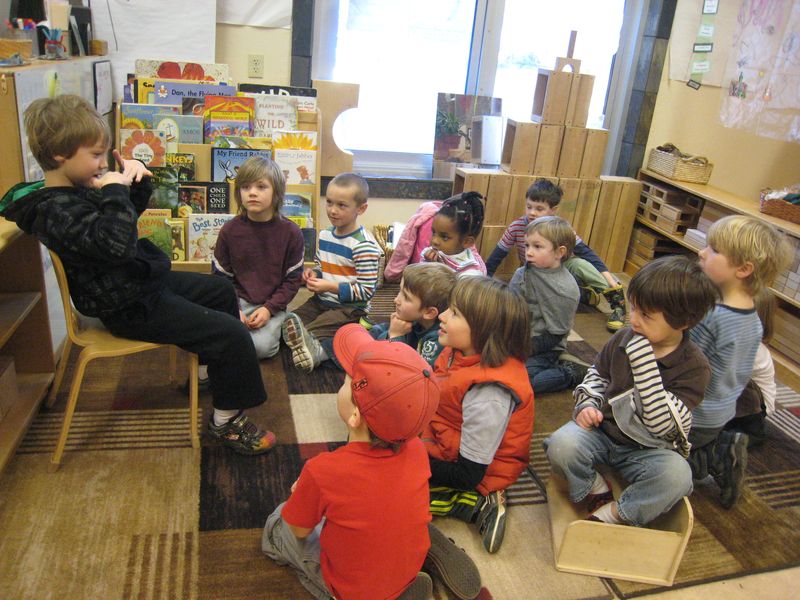Storytelling

"Storytelling is the most powerful way to put ideas into the world today." ~Robert McKee
You might be wondering why? Why would we create a structure that supports children to orally tell their stories to their community? What might they gain? And why spend the time, when we already have a structure in our week (Story Workshop) where children are invited to tell their stories daily. How is this different? What are the benefits?
These are some of the questions we will be researching as the children and I attempt for the first time, this new structure. Here are some of my initial ideas in response to those questions:
Hearing stories told by members of their community will:
- strengthen the children’s connection to each other
- build a culture of respect and listening
- invite questions to build understanding and clarify meaning
- develop an understanding and curiosity about multiple points of view
Orally telling stories to members of their community will:
- build trusting relationships
- help gain comfort speaking in front of an audience
- develop and strengthen vocabulary
- encourage perspective taking
- develop and strengthen strategies for engaging an audience
One goal for children at Opal School from the youngest ages is that they will begin to use language with increasing proficiency to communicate ideas, relationships and understandings. This new structure seems to get at exactly what we mean when we say that. We want school to be a place where children learn to read the world by exploring ideas and relationships and by making connections between known and unknown information. We see storytelling as a structure at school that will support those ideas as the children listen, speak, connect, question, and engage with the stories of their classmates. Through this process they also begin to develop an understanding and curiosity about the multiple points of view likely to be held by their peers. We want children to love to learn, to be eager as they invite the unknown, and to express the joy and wonder of learning. Can you imagine a more meaningful way to accomplish those goals than by listening, engaging, and connecting to the stories of the real people who make up your community?
As we continue to have our monthly Mind in the Making meetings, I also begin to see how this kind of a structure can support some of those seven essential life skills we’ve been talking about, including:
- ·Focus and Self Control
- ·Perspective Taking
- · Communicating
- ·Making Connections
We will keep you updated on our research as we learn more about each other and the storytelling work we are doing together. And I’ll leave you with a quote of our general sentiment towards this work so far:
“Because there is a natural storytelling urge and ability in all human beings, even just a little nurturing of this impulse can bring about astonishing and delightful results.”
—Nancy Mellon, Author of The Art of Storytelling

